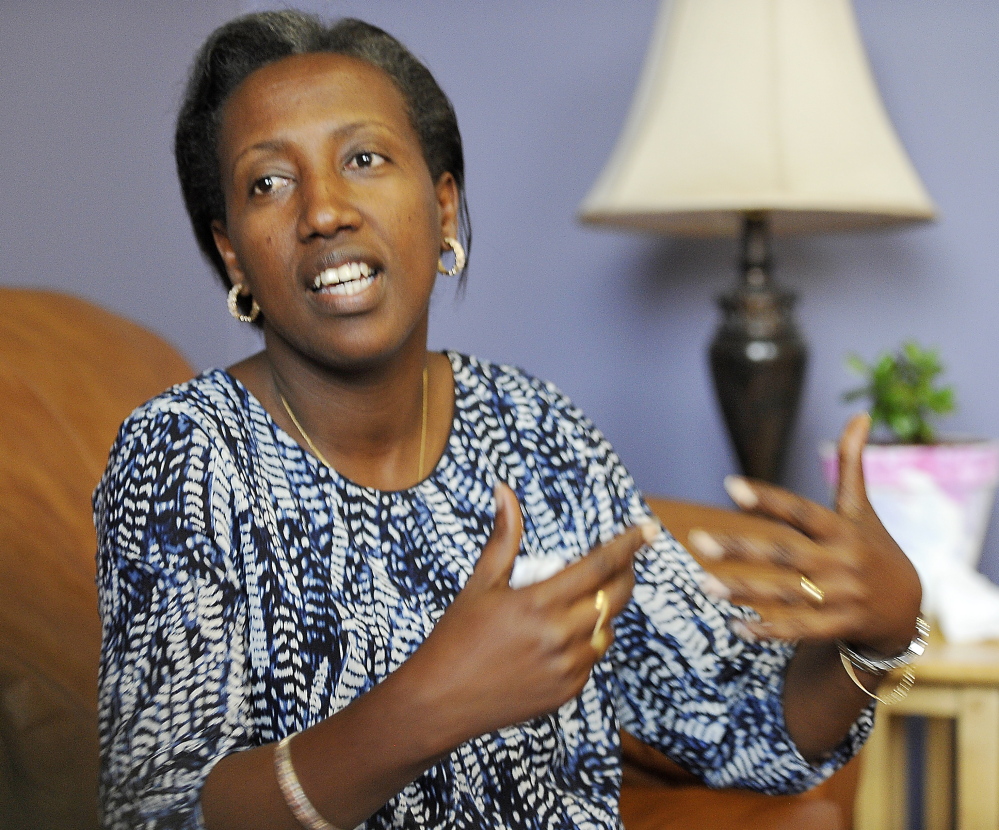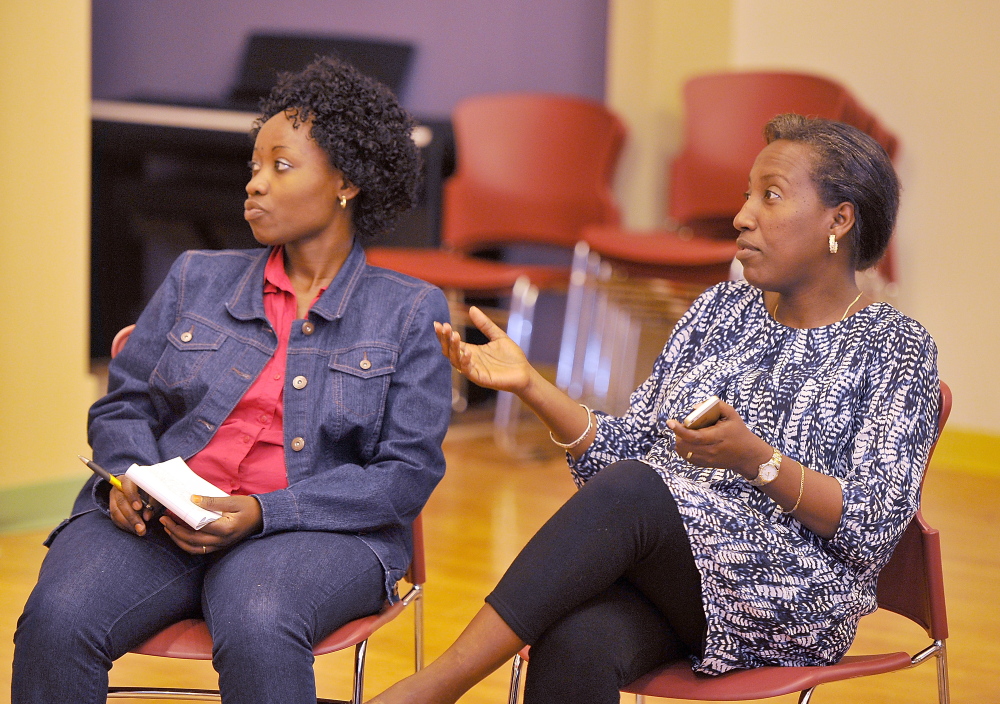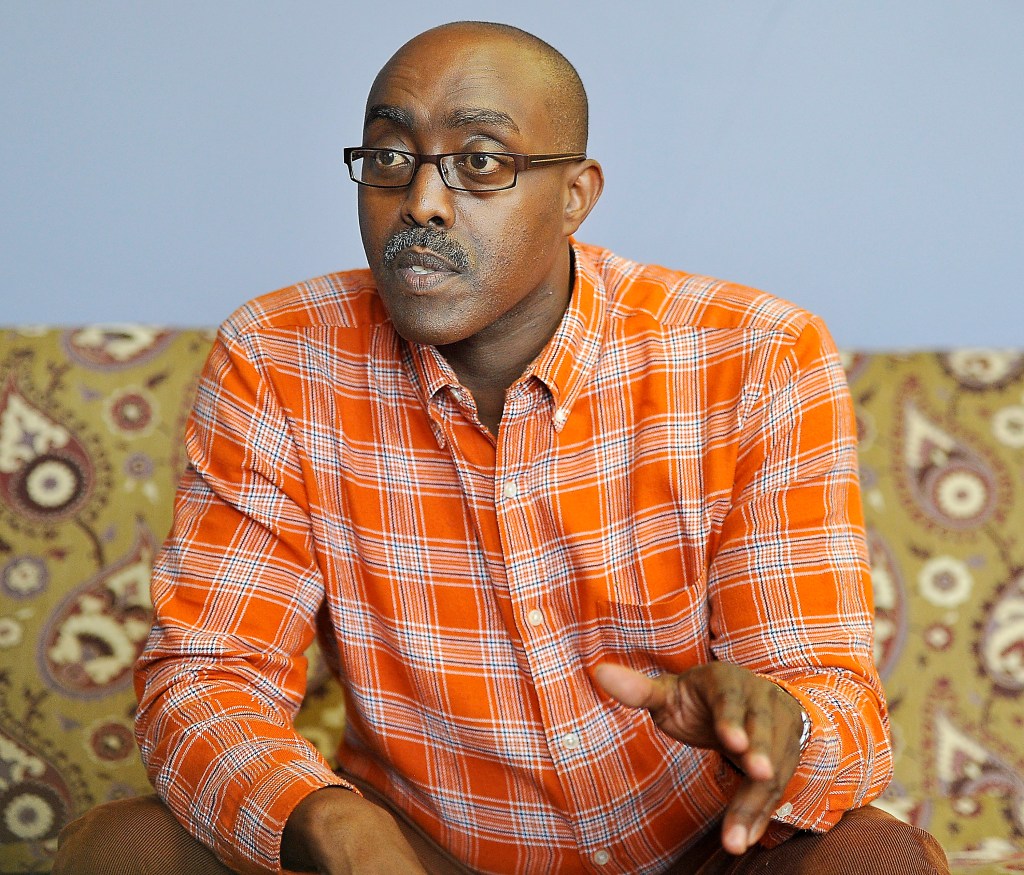The LePage administration’s plan to stop funding General Assistance benefits for undocumented immigrants has many immigrant families worried that they will lose their apartments and that their children will go hungry, say leaders in the immigrant community in Greater Portland.
“People will have nothing to feed their kids,” said Mia Ntahobari, 43, of Portland, who leads the Burundian Women’s Commission. “They just don’t know what to do.”
Ntahobari discussed the rule change Thursday at the monthly meeting of the Maine Immigrant Women’s Network, which drew 20 women from almost every immigrant group in the city.
Many were surprised to hear about the rule change announced Wednesday by the state Department of Health and Human Services. Just two weeks earlier, they had celebrated Attorney General Janet Mills’ finding that Gov. Paul LePage’s plan to exclude asylum-seekers from General Assistance aid was unconstitutional.
In its news release Wednesday, the DHHS announced that it will enforce its plan to eliminate state support for undocumented immigrants who apply for or receive General Assistance benefits.
“People couldn’t believe it,” said Claudette Ndayininahaze, 47, vice president of the Burundi Community Association. “We couldn’t believe how this change can come again.”
Without the program, which provides vouchers for rent and food and medicine, families will have nothing, said Ridelphine Katabesha, 28, who immigrated from the Democratic Republic of the Congo and now lives in Gorham. “People are confused and afraid.”
The rule change applies to immigrants who do not have documents. That includes people who entered the United States illegally, and people who came here on valid visas that have since expired.
It also includes people with expired visas who are seeking asylum in the United States, said Robyn Merrill, a senior policy analyst with the Maine Equal Justice Partners advocacy group in Augusta.
She said it can take more than a year for people to get legal help and prepare an asylum application. Under the new rule, they would be ineligible for General Assistance during that time.
Susan Roche, executive director of the Immigrant Legal Advocacy Program, said it’s difficult to determine how many people in Maine stand to be affected by the rule change. She estimated several hundred.
Those seeking asylum come here because they fear for their lives, not because they want a handout, said Ntahobari, with the Burundian Women’s Commission.
In 2010, she was so afraid in Burundi that she fled the country, leaving behind her husband and four young children. The government targeted her because of her advocacy work for women in the African nation, she said.
Alone in Portland, she first lived in a homeless shelter for two weeks. She got a studio apartment after applying for General Assistance. She received a monthly voucher of $675 for rent and a weekly voucher of $30 to $45 for food.
She was given the assistance for about a year before getting a work permit and finding jobs providing care to the disabled and elderly. Her husband and children moved here around that time.
LePage will score political points with his base with the policy change, but it’s a hateful message that “undermines the humanity” of immigrants, said Alain Nahimana, 41, an immigrant-rights organizer for the Maine People’s Alliance, a left-leaning advocacy group that organized Thursday’s meeting, along with the Maine Immigrant Rights Coalition.
Nahimana fled Burundi in 2010 after he was arrested, beaten and tortured for creating a website that was critical of the government. He received General Assistance for about seven months while his asylum status was being processed.
He said most immigrants try to get jobs as quickly as possible.
“I didn’t cross the ocean to get General Assistance,” he said. “I came to Maine for a new life, where the laws are protected and I can contribute to society.”
The administration’s decision to implement the new rule over the objection of the state’s attorney general reminds of him of the way some government leaders in Africa ignored laws they didn’t like, he said.
“We expected to come to a country where the rule of law prevails,” he said. “This is not what you would expect in a country like the United States.”
Ndayininahaze, from the Burundi Community Association, said the women at Thursday’s meeting left determined to take action to protest the rule.
“We are strongly disappointed by the move of the LePage administration to go after our communities and families and children,” she said. “For LePage, it’s a political game. But for people, it’s their lives, their survival.”
Send questions/comments to the editors.





Success. Please wait for the page to reload. If the page does not reload within 5 seconds, please refresh the page.
Enter your email and password to access comments.
Hi, to comment on stories you must . This profile is in addition to your subscription and website login.
Already have a commenting profile? .
Invalid username/password.
Please check your email to confirm and complete your registration.
Only subscribers are eligible to post comments. Please subscribe or login first for digital access. Here’s why.
Use the form below to reset your password. When you've submitted your account email, we will send an email with a reset code.